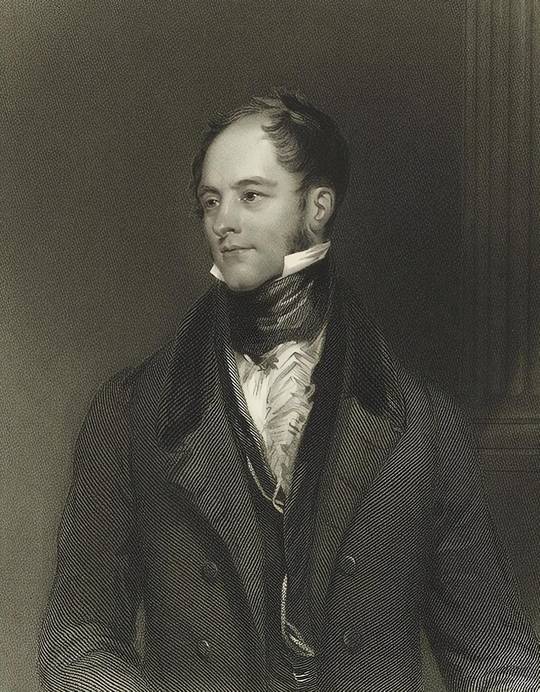Henry Goulburn (1784-1856) Son of a wealthy slave-owner, educated at Trinity College, Cambridge. A protégé of Spencer Perceval, as a young MP in 1807-8 he formed a friendship with Peel which lasted until Peel’s death in 1850. Appointed Under Secretary at the Home Office in 1809, Liverpool made him successor to Peel as Under Secretary for War and the Colonies in 1812, where he remained until 1821. His main activity during these years was to act as one of three British Commissioners to negotiate the Treaty of Ghent ending the War of 1812; as the other commissioners were the elderly Admiral Gambier1, and an otherwise obscure lawyer William Adams,2 Goulburn’s was the leading role.
In 1821, Goulburn became Chief Secretary for Ireland, still outside the Cabinet, as a balance to the pro-Catholic Wellesley as Lord Lieutenant – Mrs Arbuthnot described him as ‘the most furious Protestant that ever was’3 – and he stood for Cambridge University against the ‘Catholic’ Palmerston in 1826, much to the latter’s fury. He resigned from this office with his friend Peel on the formation of Canning’s administration and then voted for Catholic Emancipation in 1829. Wellington made him Chancellor of the Exchequer. He was Home Secretary in Peel’s short-lived government of 1834-35 and Chancellor of the Exchequer again in 1841-46, before rejoining Peel as a leading light of the crossbench Peelite group.
Peel said of him, in 1820, ‘of all the men with whom I was ever acquainted, he approaches the nearest to perfection’. Mrs Arbuthnot did not share this opinion, regarding him as inefficient and a poor Commons speaker.
[1] James Gambier (1756-1833). 1st Baron Gambier from 1807. Captain, 1778. Glorious First of June, 1794. Rear Admiral, 1795. Vice-Admiral, 1799. Governor of Newfoundland, 1802-4. Admiral, 1805. Bombarded Copenhagen, 1807. Commanded Channel fleet, 1808-9. Acquitted at court martial following indecisive Basque Roads action, 1809. GCB, 1815. Admiral of the Fleet, 1830.
[2] William Adams (1772-1851). LLD, Trinity Hall, Cambridge. Active in Ghent, 1815, commercial treaty with US, and divorce case against Queen Caroline, 1820.
[3] Bamford and Wellington, The Journal of Mrs. Arbuthnot, 1820-32, Vol. 1, p. 130.
